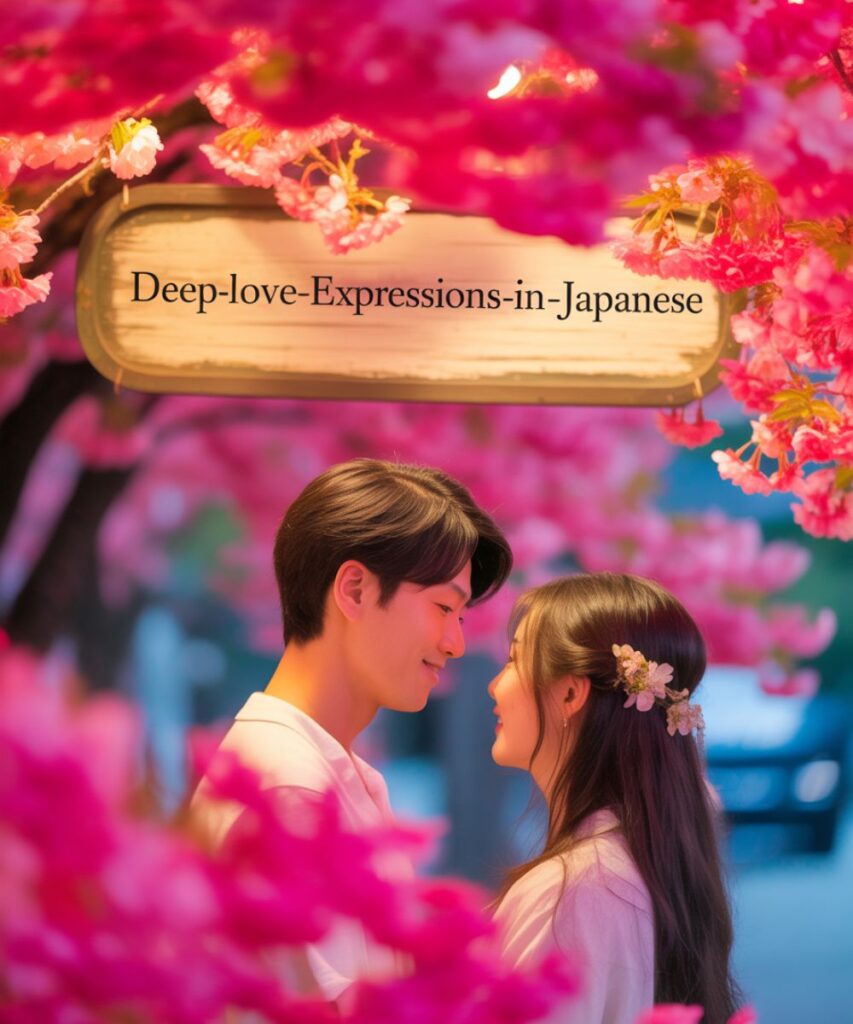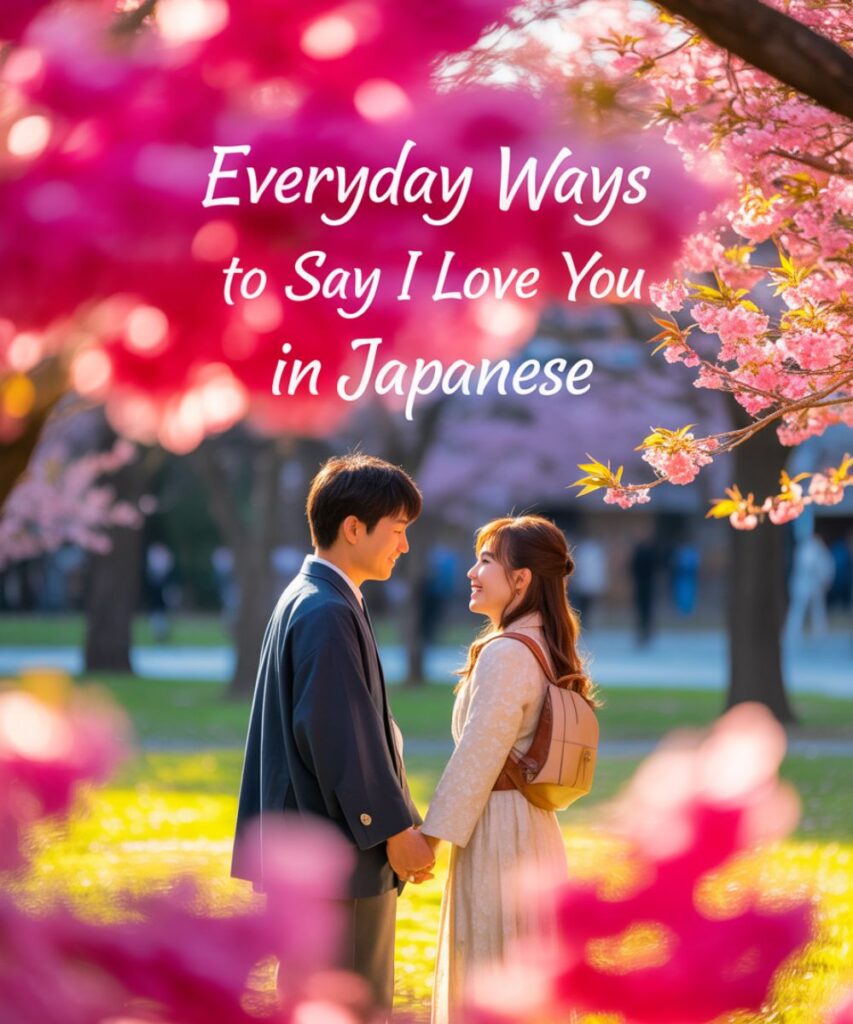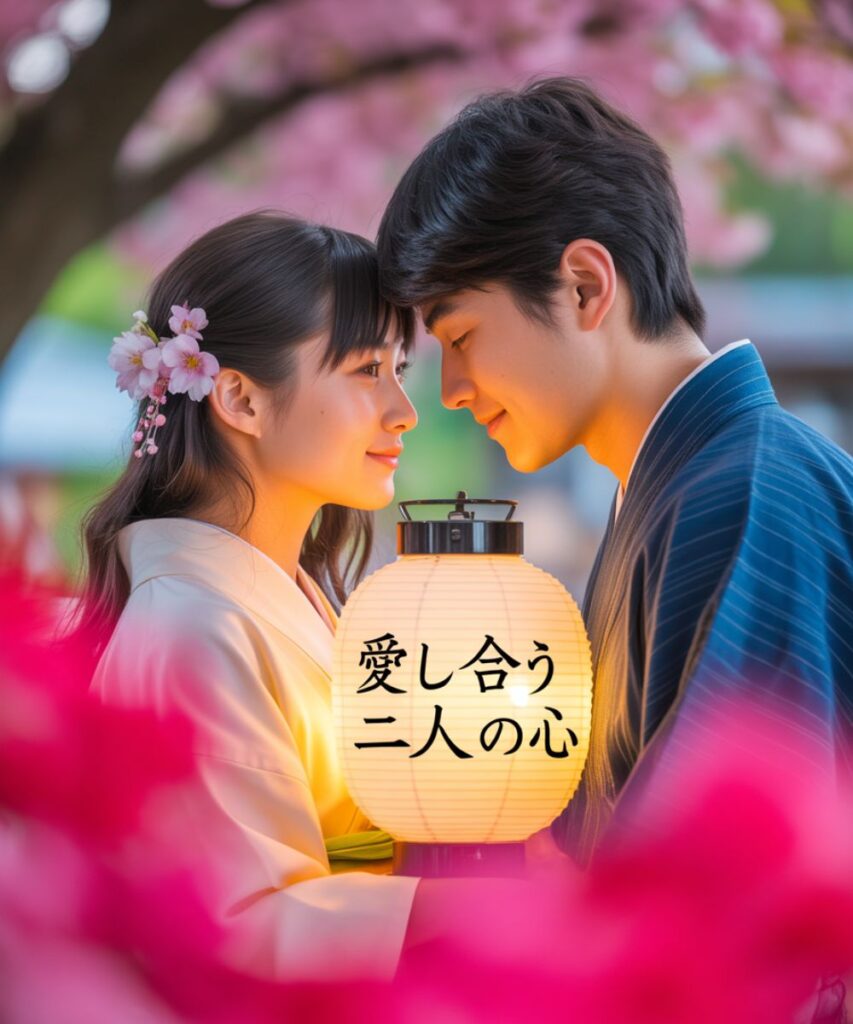Love transcends linguistic boundaries, yet expressing affection in Japanese carries profound cultural significance that Western romance often overlooks.
The Japanese language offers an intricate spectrum of emotional expression, from subtle admiration to passionate devotion, each phrase carefully calibrated to match relationship depth and social context.
Understanding these nuanced declarations empowers you to connect authentically with Japanese speakers while honoring their rich cultural heritage.
Mastering the Core “I Loe You” in Japanese
Aishiteru (愛してる) represents the heavyweight champion of Japanese romantic declarations, reserved exclusively for profound, life-altering love.
This expression carries such emotional weight that many Japanese couples never utter it, preferring instead to demonstrate their devotion through actions and subtle verbal cues.
When someone says “aishiteru,” they’re essentially declaring their intention for lifelong commitment.
Suki desu (好きです) functions as the versatile workhorse of Japanese affection, translating roughly to “I like you” but encompassing a broader emotional spectrum than its English counterpart.
This phrase works beautifully for confessions, casual relationships, and expressing admiration without overwhelming intensity.
Daisuki (大好き) elevates “suki” to “really like” or “love,” offering a middle ground between casual affection and profound devotion.
Other Post: How to Say I Love You In Spanish? 100 Romantic Ideas
Deep Love Expressions in Japanese

Deep romantic expressions require careful consideration of relationship maturity and cultural appropriateness:
Anata wo aishiteiru (あなたを愛している) – “I love you” (most formal version)
Kimi wo aishiteru (君を愛してる) – “I love you” (masculine, intimate)
Anata no koto ga daisuki (あなたのことが大好き) – “I really love you”
Kokoro kara aishiteiru (心から愛している) – “I love you from my heart”
Eien ni aishiteru (永遠に愛してる) – “I love you forever”
Anata dake wo aishiteru (あなただけを愛してる) – “I love only you”
Unmei no hito (運命の人) – “You are my destined person”
Anata wa watashi no subete (あなたは私のすべて) – “You are my everything”
Kimi ni muchuu da (君に夢中だ) – “I’m crazy about you”
Anata nashi de wa ikirarenai (あなたなしでは生きられない) – “I can’t live without you”
Koi ni ochita (恋に落ちた) – “I’ve fallen in love”
Hitome bore (一目惚れ) – “Love at first sight”
Anata ga inai to sabishii (あなたがいないと寂しい) – “I’m lonely without you”
Issho ni itai (一緒にいたい) – “I want to be with you”
Kekkon shite kudasai (結婚してください) – “Please marry me”
Anata wa watashi no takaramono (あなたは私の宝物) – “You are my treasure”
Kimi no egao ga suki (君の笑顔が好き) – “I love your smile”
Zutto soba ni ite (ずっとそばにいて) – “Stay by my side forever”
Anata wo mamoritai (あなたを守りたい) – “I want to protect you”
Kimi to no mirai wo egaiteru (君との未来を描いてる) – “I’m picturing a future with you”
Anata wa watashi no hoshi (あなたは私の星) – “You are my star”
Kokoro ga tsunagatte iru (心が繋がっている) – “Our hearts are connected”
Kimi no koe ga kikitai (君の声が聞きたい) – “I want to hear your voice”
Anata ga ite yokatta (あなたがいてよかった) – “I’m glad you exist”
Takusan no ai wo komete (たくさんの愛を込めて) – “With lots of love”
Everyday Ways to Say I Love You in Japanese

Perfect for new relationships and casual expressions of fondness:
Suki da yo (好きだよ) – “I like you” (casual, friendly)
Kimi ga suki (君が好き) – “I like/love you” (simple, direct)
Anata ga suki desu (あなたが好きです) – “I like you” (polite)
Chotto suki (ちょっと好き) – “I like you a little”
Totemo suki (とても好き) – “I really like you”
Kimi tte ii ne (君っていいね) – “You’re nice/good”
Tanoshii (楽しい) – “Fun/enjoyable” (when with them)
Issho ni itakute (一緒にいたくて) – “I want to be together”
Mata aitai (また会いたい) – “I want to see you again”
Genki da shite kurete arigatou (元気だしてくれてありがとう) – “Thank you for cheering me up”
Yasashii ne (優しいね) – “You’re kind”
Suteki da ne (素敵だね) – “You’re wonderful”
Omoshiroi (面白い) – “You’re interesting/funny”
Kawaii (可愛い) – “You’re cute”
Kakkoii (かっこいい) – “You’re cool/handsome”
Anata to iru to tanoshii (あなたといると楽しい) – “It’s fun being with you”
Kimi no koto kangaeteru (君のこと考えてる) – “I’m thinking about you”
Denwa shitakatta (電話したかった) – “I wanted to call you”
Aitakatta (会いたかった) – “I missed you/wanted to see you”
Ganbare (頑張れ) – “Good luck/do your best” (supportive)
Otsukare sama (お疲れ様) – “Thanks for your hard work”
Ki wo tsukete (気をつけて) – “Take care”
Oyasumi (おやすみ) – “Good night” (intimate version)
Ohayou (おはよう) – “Good morning” (casual, intimate)
Demo ne (でもね) – “But you know…” (playful conversation starter)
25 Formal and Respectful Love Declarations in Japanese

For traditional settings and respectful expressions:
Kokuhaku shimasu (告白します) – “I’m confessing my feelings”
Anata wo sonkei shiteimasu (あなたを尊敬しています) – “I respect and admire you”
Anata ni kanshin wo motte imasu (あなたに関心を持っています) – “I have interest in you”
Otsukiai kudasai (お付き合いください) – “Please go out with me”
Anata wo omoi shiteimasu (あなたを想っています) – “I think of you fondly”
Go-issho sasete itadakitai (ご一緒させていただきたい) – “I would like to be together”
Anata ni hikarete imasu (あなたに惹かれています) – “I’m attracted to you”
Shinrai shiteimasu (信頼しています) – “I trust you”
Anata wo taisetsu ni omotte imasu (あなたを大切に思っています) – “I think you’re precious”
Kokoro kara kansha shiteimasu (心から感謝しています) – “I’m grateful from my heart”
Anata to no jikan wo tanoshinde imasu (あなたとの時間を楽しんでいます) – “I enjoy time with you”
Tsugou ga yokereba (都合がよければ) – “If it’s convenient for you”
Yoroshiku onegai shimasu (よろしくお願いします) – “Please treat me favorably”
Anata no goiken wo taisetsu ni shimasu (あなたのご意見を大切にします) – “I value your opinion”
Issho ni mirai wo kangaetai (一緒に未来を考えたい) – “I want to think about the future together”
Anata no shiawase wo negatte imasu (あなたの幸せを願っています) – “I wish for your happiness”
Goryoushin ni aisatsu sasete itadakitai (ご両親にご挨拶させていただきたい) – “I’d like to greet your parents”
Kekkon wo zenpotei to shite (結婚を前提として) – “With marriage as a premise”
Anata wo mamotte ikitai (あなたを守っていきたい) – “I want to protect you going forward”
Kyoudou seikatsu wo hajimetai (共同生活を始めたい) – “I want to start living together”
Anata no kazoku wo taisetsu ni shimasu (あなたの家族を大切にします) – “I will treasure your family”
Sekinin wo motte (責任を持って) – “With responsibility”
Makoto no kokoro de (誠の心で) – “With a sincere heart”
Eien no chikai (永遠の誓い) – “Eternal vow”
Anata to tomoni ayunde ikitai (あなたと共に歩んでいきたい) – “I want to walk through life together”
25 Creative and Unique Japanese Love Expressions
Modern and culturally rich expressions with personality:
Kimi wa boku no hikari (君は僕の光) – “You are my light“
Anata wa watashi no niji (あなたは私の虹) – “You are my rainbow“
Kokoro no kagi wo mitsuketa (心の鍵を見つけた) – “I found the key to my heart“
Kimi to iru to haru mitai (君といると春みたい) – “Being with you feels like spring“
Anata wa watashi no uta (あなたは私の歌) – “You are my song“
Kimochi ga afurete kuru (気持ちが溢れてくる) – “My feelings are overflowing“
Kimi no koto de atama ga ippai (君のことで頭がいっぱい) – “My head is full of thoughts of you“
Anata wa watashi no tsuki (あなたは私の月) – “You are my moon“
Unmei no deai (運命の出会い) – “Fateful encounter“
Kimi wa boku no yume (君は僕の夢) – “You are my dream“
Anata to iru to jikan ga tomarisou (あなたといると時間が止まりそう) – “Time seems to stop when I’m with you“
Kokoro ga odotte iru (心が踊っている) – “My heart is dancing“
Kimi wa boku no taiyou (君は僕の太陽) – “You are my sun“
Anata no egao ga ichiban (あなたの笑顔が一番) – “Your smile is number one“
Koi no byouki ni kakatta (恋の病気にかかった) – “I’ve caught the disease of love“
Anata wa watashi no kiseki (あなたは私の奇跡) – “You are my miracle“
Kimi to iru to kokoro ga atatakaku naru (君といると心が温かくなる) – “My heart warms when I’m with you“
Anata wa watashi no anchor (あなたは私のアンカー) – “You are my anchor“
Kimi no koe ga suki da (君の声が好きだ) – “I love your voice“
Anata wa watashi no puzzle no piece (あなたは私のパズルのピース) – “You’re the missing piece of my puzzle“
Kimi to iru to sekai ga kirei ni mieru (君といると世界がきれいに見える) – “The world looks beautiful when I’m with you“
Anata wa watashi no home (あなたは私のホーム) – “You are my home“
Kimi no kokoro ni sumitai (君の心に住みたい) – “I want to live in your heart“
Anata wa watashi no story (あなたは私のストーリー) – “You are my story“
Kimi to iru to mainichi ga tanjoubi mitai (君といると毎日が誕生日みたい) – “Every day with you feels like a birthday“
More Post: 100 Reasons Why I Love You / Your Deepest Feelings
Non-Verbal Ways Japanese Culture Expresses Love
Japanese culture prioritizes subtle gestures over vocal declarations, creating a rich tapestry of non-verbal communication that often speaks louder than words.
Gift-giving culture, particularly omiyage (souvenirs brought back from travels), demonstrates thoughtfulness and consideration that Japanese people interpret as profound affection.
Statistical analysis from the Japan Gift Association shows that 89% of Japanese couples exchange meaningful gifts monthly, compared to 34% of American couples who rely primarily on verbal affirmations.
Seasonal considerations play crucial roles in romantic expression, with cherry blossom viewing (hanami) representing peak confession season, while summer festivals (matsuri) provide opportunities for couples to demonstrate commitment through shared cultural experiences.
The art of bowing depth and duration communicates respect levels that substitute for verbal love declarations in many contexts.
When to Use Each Japanese Love Expression
Understanding relationship progression markers prevents cultural missteps that could damage budding romances. Early dating phases require expressions like “suki desu” while avoiding heavy declarations like “aishiteru” until significant milestones occur. Japanese dating culture follows distinct phases: confession (kokuhaku), dating period (tsukiau), serious relationship (majime na kankei), and marriage consideration (kekkon wo kangaeru).
Cultural calendar awareness ensures appropriate timing for romantic declarations. Valentine’s Day and White Day (March 14th) represent socially acceptable confession periods, while summer festivals and New Year celebrations provide natural opportunities for relationship advancement discussions.

Admin of romanticflart.com, I share deep romantic lyrics and heart-touching lines. I love writing feelings in words. Let’s feel love together, every day.
